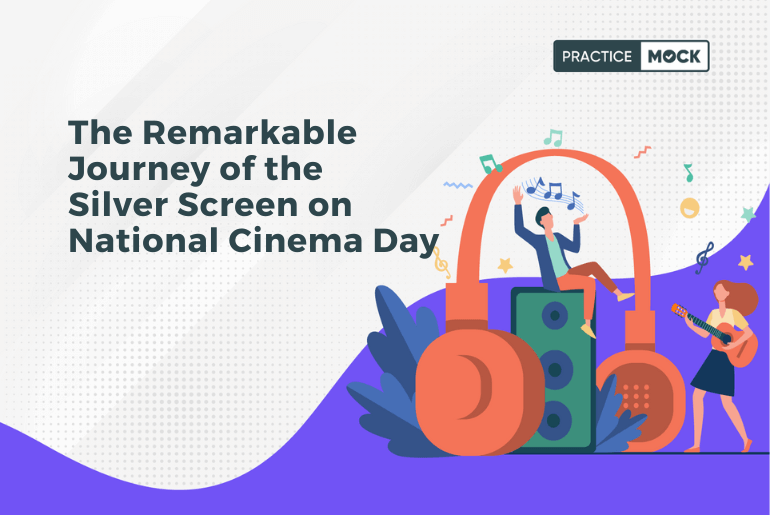

The evolution of the silver screen has been nothing short of remarkable. Over the years, cinema has transformed from traditional celluloid film projection to the digital age of streaming. This journey has not only changed how we consume films but has also revolutionized the filmmaking process. In this article, we’ll explore the fascinating transformation of the silver screen and its relevance on National Cinema Day.
The Birth of the Silver Screen
The term “silver screen” originates from the use of highly reflective silver-coated screens in early cinema. The history of the silver screen can be traced back to the late 19th century when the Lumière brothers introduced the concept of projected motion pictures. These pioneering filmmakers utilized celluloid film reels to bring moving images to life, laying the foundation for the entire film industry.
Golden Era of Celluloid
The 20th century witnessed the golden era of celluloid filmmaking. Iconic films like “Gone with the Wind” and “Casablanca” were shot and projected on celluloid film. The use of physical film stock was the norm for decades, contributing to the unique look and feel of classic cinema. This era is celebrated for its storytelling prowess and the creation of timeless cinematic masterpieces.
The Digital Revolution
The late 20th century marked the beginning of the digital revolution in cinema. Filmmakers started adopting digital cameras, enabling them to shoot and edit films using digital technology. This transition led to significant advancements in special effects, post-production, and distribution, making filmmaking more accessible to independent creators.
Streaming Services Take Center Stage
In the 21st century, the emergence of streaming services like Netflix, Amazon Prime, and Disney+ has fundamentally transformed how we consume films and television shows. These platforms have made it possible to access a vast library of content at our fingertips, revolutionizing the distribution model and creating new opportunities for filmmakers and storytellers.
Accessibility and Convenience
Streaming services have democratized cinema by making it more accessible to a global audience. People can now watch movies and series on various devices, including smartphones and tablets, anytime and anywhere. This convenience has changed the way we experience and share cinematic stories.
Original Content and Diverse Voices
Streaming platforms have also paved the way for diverse voices and narratives in cinema. They invest in original content, allowing filmmakers from around the world to showcase their work to a global audience. This has led to a resurgence of independent filmmaking and a broader representation of stories on screen.
Challenges and Opportunities
While streaming has brought numerous benefits to the industry, it also presents challenges such as concerns about the future of traditional movie theaters. However, many filmmakers and studios have found opportunities to release films both in theaters and on streaming platforms simultaneously, offering viewers more choices in how they experience cinema.
The Ever-Evolving Journey
The journey of the silver screen from celluloid to streaming continues to evolve. New technologies, such as virtual reality and augmented reality, are pushing the boundaries of storytelling, promising exciting possibilities for the future of cinema. On National Cinema Day, we celebrate this journey and reflect on the ever-changing landscape of the silver screen, a medium that continues to captivate and inspire audiences worldwide.
Recent Posts
RRB Clerk Quantitative Aptitude Master Strategy: Check tips to Score 35+ Marks in Real Exam
In this article we are providing the RRB Clerk Quantitative Aptitude Master Strategy 2025, candidate…
200+ Number Series Repeated Questions For RRB PO Based on Previous Year Paper
In this article, we are providing the 200+ Number Series Questions for RRB PO based…
RBI Grade B Notification 2025, Expected Release Date & Latest Updates
Get all the information you need about RBI Grade B 2025 Notification, including Exam Date,…
RBI Grade B Selection Rate- Check Success Rate, Percentage and Ratio
Learn about RBI Grade B’s selection rate, applicant statistics, and how to plan smarter with…
BOB Office Assistant Cut-off 2025
BOB Office Assistant cut-off is given with the previous year trend analysis, and the expected…
Success Story of Shreyash Sharma, Cleared Supreme Court JCA
In an interview with PracticeMock, Shreyash Sharma shared his journey of clearing the Supreme Court…


